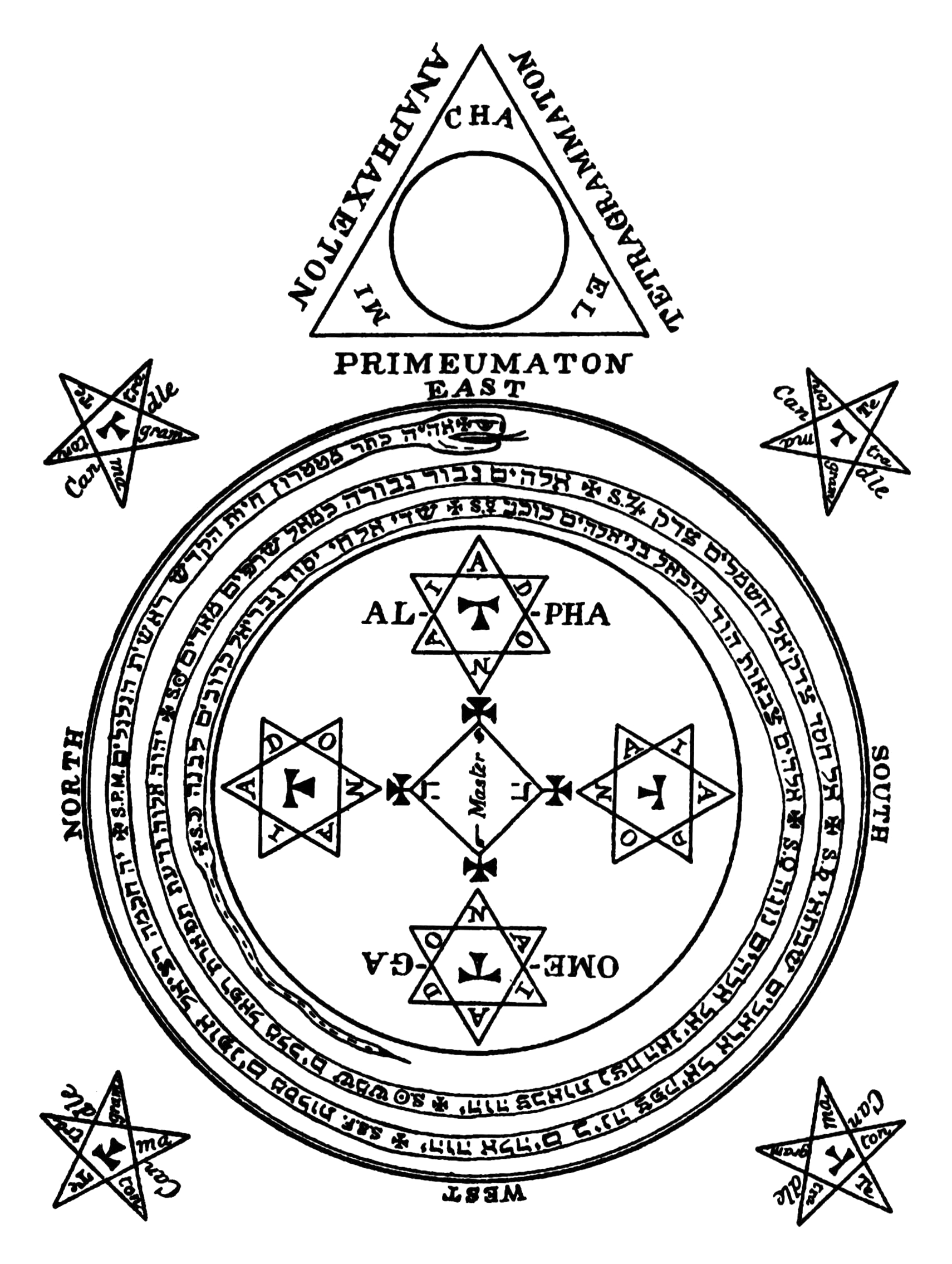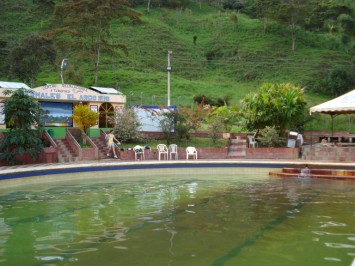|
Georg Pictorius
Georg Pictorius of Villingen (c. 1500 – 1569) was a physician and an author of the German Renaissance. He became active as a physician from 1540 in Ensisheim. In his book on magic, he condemns witchcraft, endorsing the witch-trials of his time: "if the witches are not burned, the number of these furies swells up in such an immense sea that no one could live safe from their spells and charms." (Midelfort p. 59) His gynecological ''Frauenzimmer'' gives cosmetic advice for women, from the suppression of unpleasant scents to the shaping of their bosom (Walter, p. 372f.) works: *1532 Theologia mythologica *''Isagoge'', the fourth book in the collection published as the Fourth Book of Occult Philosophy by Henry Cornelius Agrippa *1555 '' Lasz Büchlin'', on bloodletting *1560 '' Baderbüchlin'', on balneotherapy *''Von den Gattungen der Ceremonialmagie (Goetie)'' (Eng. ''Of the Kinds of Ceremonial Magic (Goetia)''), ed. '' Das Kloster'' (1846) See also *Johann Weyer ... [...More Info...] [...Related Items...] OR: [Wikipedia] [Google] [Baidu] |
Pictorius
Pictorius is the Latin for "painter". It is also a Latinized name used by several authors of the Renaissance era. *Georg Pictorius Georg Pictorius of Villingen (c. 1500 – 1569) was a physician and an author of the German Renaissance. He became active as a physician from 1540 in Ensisheim. In his book on magic, he condemns witchcraft, endorsing the witch-trials of his time ... * Josua Maaler {{Disambiguation ... [...More Info...] [...Related Items...] OR: [Wikipedia] [Google] [Baidu] |
Ceremonial Magic
Ceremonial magic (also known as magick, ritual magic, high magic or learned magic) encompasses a wide variety of rituals of Magic (supernatural), magic. The works included are characterized by ceremony and numerous requisite accessories to aid the practitioner. It can be seen as an extension of ritual magic, and in most cases synonymous with it. Popularized by the Hermetic Order of the Golden Dawn, it draws on such schools of philosophical and occult thought as Hermetic Qabalah, Enochian magic, Thelema, and the magic of various grimoires. Ceremonial magic is part of Hermeticism and Western esotericism. The synonym ''magick'' is an archaic spelling of 'magic' used during the Renaissance, which was revived by Aleister Crowley to differentiate occult magic from magic (illusion), stage magic. He defined it as "the Science and Art of causing Change to occur in conformity with Will", including ordinary acts of will as well as ritual magic. Crowley wrote that "it is theoretically ... [...More Info...] [...Related Items...] OR: [Wikipedia] [Google] [Baidu] |
German Occult Writers
German(s) may refer to: * Germany, the country of the Germans and German things **Germania (Roman era) * Germans, citizens of Germany, people of German ancestry, or native speakers of the German language ** For citizenship in Germany, see also German nationality law **Germanic peoples (Roman era) *German diaspora * German language * German cuisine, traditional foods of Germany People * German (given name) * German (surname) * Germán, a Spanish name Places * German (parish), Isle of Man * German, Albania, or Gërmej * German, Bulgaria * German, Iran * German, North Macedonia * German, New York, U.S. * Agios Germanos, Greece Other uses * German (mythology), a South Slavic mythological being * Germans (band), a Canadian rock band * "German" (song), a 2019 song by No Money Enterprise * ''The German'', a 2008 short film * "The Germans", an episode of ''Fawlty Towers'' * ''The German'', a nickname for Congolese rebel André Kisase Ngandu See also * Germanic (disambiguat ... [...More Info...] [...Related Items...] OR: [Wikipedia] [Google] [Baidu] |
People From Villingen-Schwenningen
The term "the people" refers to the public or common mass of people of a polity. As such it is a concept of human rights law, international law as well as constitutional law, particularly used for claims of popular sovereignty. In contrast, a people is any plurality of persons considered as a whole. Used in politics and law, the term "a people" refers to the collective or community of an ethnic group or nation. Concepts Legal Chapter One, Article One of the Charter of the United Nations states that "peoples" have the right to self-determination. Though the mere status as peoples and the right to self-determination, as for example in the case of Indigenous peoples (''peoples'', as in all groups of indigenous people, not merely all indigenous persons as in ''indigenous people''), does not automatically provide for independent sovereignty and therefore secession. Indeed, judge Ivor Jennings identified the inherent problems in the right of "peoples" to self-determination, as i ... [...More Info...] [...Related Items...] OR: [Wikipedia] [Google] [Baidu] |
1569 Deaths
Year 1569 ( MDLXIX) was a common year starting on Saturday of the Julian calendar. Events January–March * January 11 — The first recorded lottery in England begins and continues, nonstop, at the west door of St Paul's Cathedral for almost five months. Each share costs ten shillings, and proceeds are used to repair harbours, and for other public works. * February 26 — Pope Pius V issues a papal bull expelling all Jews from Italian and French territories. * March 13 – Battle of Jarnac: Royalist troops under Marshal Gaspard de Tavannes surprise and defeat the Huguenots under the Prince of Condé, who is captured and murdered. A substantial proportion of the Huguenot army manages to escape, under Gaspard de Coligny. April–June * April 15 – Burmese–Siamese War: In what is now Thailand, Mahinthrathirat reclaims the throne of the Ayutthaya Kingdom upon the death of King Maha Chakkraphat. * May 6 – England's St. Paul Cathedral lottery ends with the selection ... [...More Info...] [...Related Items...] OR: [Wikipedia] [Google] [Baidu] |
1500s Births
Fifteen or 15 may refer to: *15 (number) *one of the years 15 BC, AD 15, 1915, 2015 Music *Fifteen (band), a punk rock band Albums * ''15'' (Buckcherry album), 2005 * ''15'' (Ani Lorak album), 2007 * ''15'' (Phatfish album), 2008 * ''15'' (Tuki album), 2025 * ''15'' (mixtape), a 2018 mixtape by Bhad Bhabie * ''Fifteen'' (Green River Ordinance album), 2016 * ''Fifteen'' (The Wailin' Jennys album), 2017 * ''Fifteen'', a 2012 album by Colin James Songs * "Fifteen" (song), a 2008 song by Taylor Swift *"Fifteen", a song by Harry Belafonte from the album '' Love Is a Gentle Thing'' *"15", a song by Rilo Kiley from the album ''Under the Blacklight'' *"15", a song by Marilyn Manson from the album ''The High End of Low'' Other media * ''15'' (film), a 2003 Singaporean film * ''Fifteen'' (TV series), international release name of ''Hillside'', a Canadian-American teen drama * "Fifteen" (''Runaways''), an episode of ''Runaways'' *Fifteen (novel), a 1956 juvenile fict ... [...More Info...] [...Related Items...] OR: [Wikipedia] [Google] [Baidu] |
Johann Weyer
Johannes Wier ( or '; 1515 – 24 February 1588) was a Dutch physician who was among the first to publish a thorough treatise against the trials and persecution of people accused of witchcraft. His most influential work is ('On the Illusions of the Demons and on Spells and Poisons'; 1563). Biography Weyer was born in Grave, a small town in the Duchy of Brabant in the Habsburg Netherlands. He attended the Latin schools in 's-Hertogenbosch and Leuven and when he was about 14 years of age, he became a live-in student of Heinrich Cornelius Agrippa, in Antwerp. Agrippa had to leave Antwerp in 1532 and he and Weyer settled in Bonn, under the protection of prince-bishop Hermann von Wied (Agrippa completed a work on demons in 1533 and perished two years later while on a trip to France). From 1534, Weyer studied medicine in Paris and later in Orléans, but it appears unlikely that he obtained the title of Doctor through these studies. Eventually, he practiced as a physici ... [...More Info...] [...Related Items...] OR: [Wikipedia] [Google] [Baidu] |
Das Kloster
''Das Kloster'' ("The Cloister"; full title ''Das Kloster. Weltlich und geistlich. Meist aus der ältern deutschen Volks-, Wunder-, Curiositäten-, und vorzugsweise komischen Literatur'' "The Cloister. Profane and sacred. Mostly from older German Popular, Miraculous, Curious and especially Comical Literature") is a collection of magical and occult texts, chapbooks, folklore, popular superstition and fairy tales of the German Renaissance compiled by Stuttgart antiquarian Johann Scheible in 12 volumes, 1845-1849. Vols. 3, 5 and 11 are dedicated to the Faust legend. Vols. 7, 9 and 12 dealing with topics of folklore and ethnography were written by F. Nork (pseudonym of Friedrich Korn, 1803–1850). *vol. 1 (1845), 840 pp, ch. 1-4 ''Volksprediger, Moralisten und frommer Unsinn'' *vol. 2 (1846), 1074 pp, ch. 5-8'', Doctor Johann Faust'' *vol. 3 (1846), 1065 pp, ch. 9-12, ''Christoph Wagner, Don Juan Tenorio und verschiedene Schwarzkünstler und Beschwörer'' **9. Christoph Wagner * ... [...More Info...] [...Related Items...] OR: [Wikipedia] [Google] [Baidu] |
Goetia
(, ) is a type of European sorcery, often referred to as witchcraft, that has been transmitted through grimoires—books containing instructions for performing magical practices. The term "goetia" finds its origins in the Greek word "goes", which originally denoted diviners, magicians, healers, and seers. Initially, it held a connotation of low magic, implying fraudulent or deceptive ''mageia'' as opposed to theurgy, which was regarded as divine magic. Grimoires, also known as "books of spells" or "spellbooks", serve as instructional manuals for various magical endeavors. They cover crafting magical objects, casting spells, performing divination, and summoning supernatural entities, such as angels, spirits, deities, and demons. Although the term "grimoire" originates from Europe, similar magical texts have been found in diverse cultures across the world. The history of grimoires can be traced back to ancient Mesopotamia, where magical incantations were inscribed on c ... [...More Info...] [...Related Items...] OR: [Wikipedia] [Google] [Baidu] |
Balneotherapy
Balneotherapy ( "bath") is a method of treating diseases by bathing, a traditional medicine technique usually practiced at spas. Since ancient times, humans have used hot springs, public baths and thermal medicine for therapeutic effects. While it is considered distinct from hydrotherapy, there are some overlaps in practice and in underlying principles. Balneotherapy may involve hot or cold water, massage through moving water, Relaxation technique, relaxation, or stimulation. Many mineral waters at spas are rich in particular minerals such as silica, sulfur, selenium, and radium. Medicinal clays are also widely used, a practice known as 'fangotherapy'. Definition and characteristics "Balneotherapy" is the practice of immersing a subject in mineral water or mineral-laden mud; it is part of the traditional medicine of many cultures and originated in hot springs, cold water springs, or other sources of such water, like the Dead Sea. Presumed effect on diseases Balneotherapy may ... [...More Info...] [...Related Items...] OR: [Wikipedia] [Google] [Baidu] |




